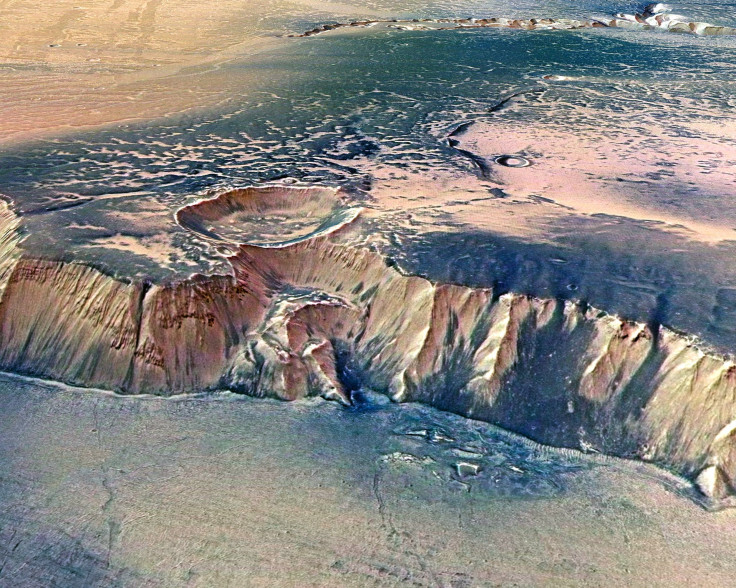NASA Captures ‘Mysterious’ Terrain Over Mars

Scientists from NASA recently shared a photo of a mysterious terrain captured by the space agency’s Mars Reconnaissance Orbiter (MRO). The terrain, whose ridges look like the folds of a brain, was described by one of the researchers as “one of the unsolved mysteries of Mars.”
The photo was made public by MRO’s HiRise camera team from the University of Arizona and was said to have been captured in December last year.
According to CNET, the surface looks quite similar to terrains discovered by NASA scientists back in 2013, but they still have no way of telling what the image really is.
"This strange-looking surface might be related to flow of the ice, but we still don't have a definite explanation for this mystery," the team from NASA’s Jet Propulsion Laboratory said in a post back then.
The brain-like surface, dubbed as “Brain Terrain,” points to the possibility that there’s more ice on Mars than we know of. The recent images were explained by the HiRise team as “buried water-ice beneath the surface.”
The ice water then changes to gas and forms the land ripples. This process is described as very slow, so dating the terrain could give some interesting data on the formation of the planet as we know now.
The earlier brain terrain has been considered by NASA scientists as lobate features made of pure ice that are similar to the Earth’s ice glaciers. The difference is that Earth glaciers flow fast, while the Martian deposits are assumed to be slow in forming.
NASA’s Mars Reconnaissance Orbiter has been studying the planet and sending data back to Earth since 2006. Its main function is to get better image and data on the planet’s surface and to discover possible bodies of water or evidence of water on the planet.
Aside from the brain terrain, the MRO has also discovered other weird surfaces or images on the Red Planet such as the “faces of Mars” image taken by NASA's Viking 1 Orbiter in 1976 and a photo of what looked like a thigh bone captured by the Curiosity rover.
© Copyright IBTimes 2024. All rights reserved.





















